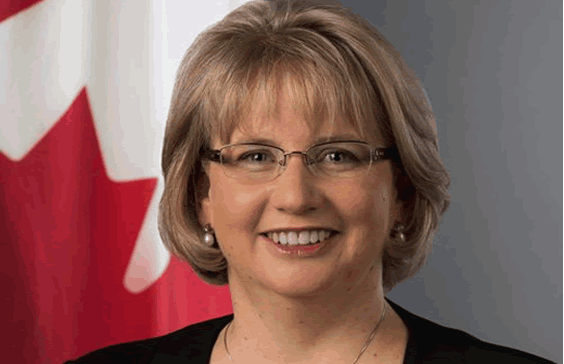Canada is helping Ghana to manage flood risk – High Commissioner

Madam Heather Cameron, the Canadian High Commissioner, has announced that her country is helping Ghana to improve flood risk management in Accra through its International Development Research Centre.
She said the assistance was very critical in helping provide scientific evidence to develop an integrated climate smart flood management framework, to support policy-making and the predictive capacity of city planners to assess the risk of future floods.
Speaking at a Pre-Conference of Parties (COP) climate festival held in Accra to sensitize the public on climate risk, Madam Cameron said the two countries were also working together closely to help modernise agriculture, through the dissemination of best practices and of climate smart agriculture to farmers in Ghana, most of whom were women.
The Pre-COP festival was organised by the Regional Institute for Population Studies, (RIPS) of the University of Ghana, in collaboration with the National Disaster Management Organisation (NADMO), the Ministries of Finance and Food and Agriculture, with the support from the Deutsche Gesellschaft fur Internationale Zusammenarbeit (GIZ) and the International Development Centre of Canada as part of Ghana’s preparation towards COP 23 to be hosted in Bonn, Germany.
The Pre-COP climate Festival was one of the flagship projects of the RIPS, intended to bring many diverse groups of people and actors together to raise awareness and deliberate the state of Ghana in respect of climate change.
It was on the theme: “The Risks We Do Not Want”.
COP 23, scheduled from November 6 to 17, would be chaired by Fiji with support from the German Government, and it would help discuss and strengthen commitments of countries towards climate change mitigation, adaptation and funding activities to relieve the world, especially, developing countries like Ghana, of the impact of climate change.
Madam Cameron said as Ghana’s COP23 preparations were being debated and discussed, it was important to give attention to the specific needs of women, to support their leadership and decision making in both climate change mitigation and adaptation efforts.
“Ghana’s climate-related planning, policy-making and financing should address both the challenges faced by women and girls, and the potential for women to be active participants in building more resilient communities, new clean energy companies, or in undertaking the scientific research that supports sustainable natural resource management,” she said.
She noted that as stakeholders work together to implement the 2030 Agenda for the SDGS, there was the need to recognise that achieving the Goals could not be done without tackling the challenges posed by climate change.
“Tackling climate change demands innovation, new partnerships and new ways of working together,” she noted, adding that Canada on its parts would continue to act internationally, in dealing with climate change.
She announced that Canada’s pledge of $2.65 billion that was promised by Prime Minister Trudeau in 2015 as its financial contribution towards helping developing countries respond and adapt to climate change was now active.
“We have contributed $50 million to the African Risk Capacity Agency (ARCA), as part of our commitment to the G7 Climate Risk Resilience Initiative. ARCA uses climate risk insurance, early warning tools and natural disaster response plans to support governments to provide immediate assistance to populations affected by extreme weather events and natural resources,” Madam Cameron said.
She commended Ghana for currently participating in the ARC’s capacity building programme and already using the risk software to develop an early warning bulletin which was now being distributed and used for in-season monitoring of drought.
Source: GNA
